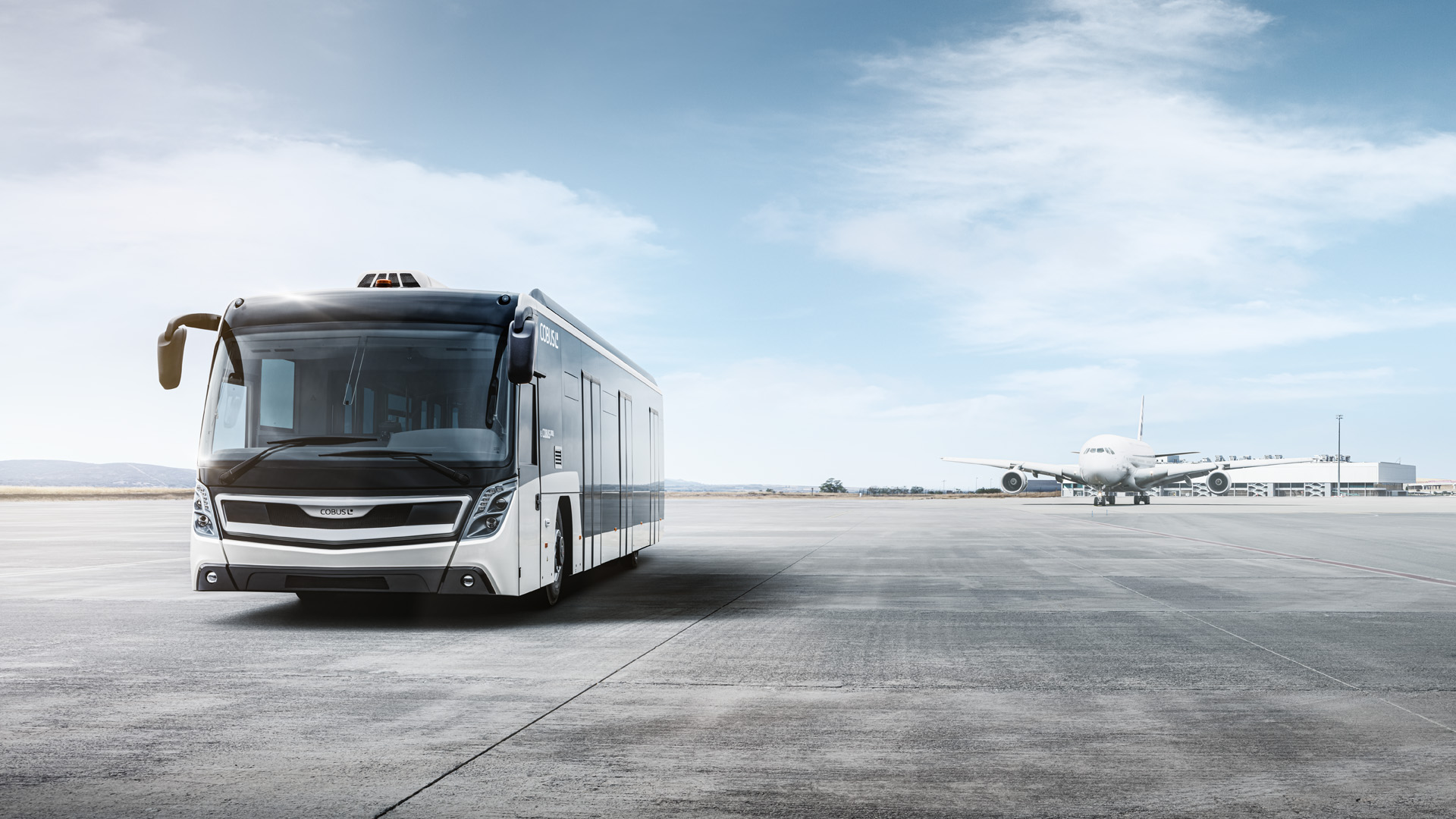COBUS Industries is a global leader in airport mobility with a presence in 350 airports across 115 countries, delivering high-performance, durable products that ensure sustainable and efficient airport operations. As it looks to shape the future of sustainable airport mobility, it recognised it needed to look after its EV fleet’s battery health to protect its assets, and chose our ZeroCarbon BatteryManager solution. Our initial pilot of 24 buses has since expanded to 37 with plans to increase this to 124 buses by the end of 2025.

COBUS Industries
ZeroCarbon BatteryManagerUnlocking globally scalable EV battery insights for an airport mobility pioneer.
Solutions
Shaping the future of airport mobility
Finding a solution that supports COBUS’ operational demands
Unlike the typical city bus, the COBUS fleet experiences a number of stresses related to its operational environment. This includes state-of-charge idling, varying temperatures, and shorter journey lengths. As a result, it sought greater visibility and insight into the performance, warranty and longevity of its vehicles most valuable asset - the EV battery.
COBUS needed an OEM-agnostic battery monitoring system too. This is so it could analyze battery degradation rates across all its buses, under its operational conditions, and negotiate more effective warranty terms with suppliers, reducing long-term replacement costs. This also supports second-life planning and more effective procurement strategies.
The airport mobility provider also wanted deep insight into how different battery chemistries perform under varying airport stress-related factors, so it could select the most suitable battery technology for future bus purchases, optimising both performance and range. This also helps to predict remaining useful life and supports decisions about when to upgrade or repurpose the asset
Deploying ZeroCarbon BatteryManager
ZeroCarbon BatteryManager provides a telematics-agnostic approach that enables seamless integration with existing providers, combining battery data, vehicle and route mapping information for a holistic view of battery asset performance and health.
Our data science professionals analyze live and monthly reports for COBUS, and provide key performance indicators on battery health, usage and warranty. This granular insight into each battery minimizes potential degradation and proactively flags possible issues before they escalate into faults.
The airport network has a net-zero roadmap just like any other industry, and we’re playing an important role in this by delivering sustainable mobility solutions. But electrifying our bus network is just the start of the passenger experience we want to provide.
To keep our assets healthy and running efficiently for the long term, we need to understand how to manage our EV batteries to optimise routes and retain the value of our assets. With Hitachi ZeroCarbon, we have a globally scalable solution that is driving real business value.
The benefits delivered to COBUS:
- Enhanced battery health management: Real-time monitoring and analysis of battery performance with the aim to optimise usage and extend battery life.
- Reduced operational costs: Proactive identification and resolution of potential issues minimize downtime and maintenance expenses.
- Data-driven decision making: Access to comprehensive battery data and insights informs procurement strategies and second-life usage planning.
- Improved fleet management: Enhanced visibility into battery performance enables more efficient fleet operations and resource allocation.
- Sustainable operations: Optimised battery usage contributes to a more sustainable and environmentally friendly airport transportation system.
A partnership built for long-term success
Our partnership is about a shared commitment to innovation and sustainability in airport mobility. In using our advanced battery management technology, COBUS is ensuring the long-term performance and efficiency of its electric bus fleet, while enhancing the passenger experience and contributing to a greener future for airport transportation.
